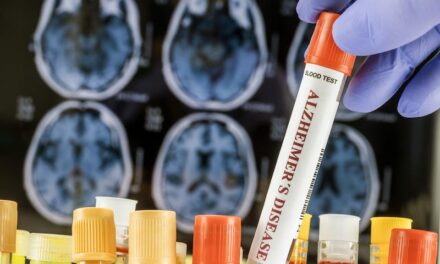SYNAPS Dx, a privately held company focused on the research, development, and commercialization of a diagnostic test for Alzheimer’s disease (AD), announced the publication of a new study, “Clinical Utility of a Novel Test to Diagnose Alzheimer’s Disease in Patients with Suspected Dementia,” in Annals of Clinical Cytology and Pathology.
The study indicates that 90% of physicians would order and routinely use the results of the DISCERN test to more accurately diagnose Alzheimer’s, prescribe medications for AD cognitive impairment, refer to a neurologist, or prescribe a disease-modifying drug.
The DISCERN Test
DISCERN is an autopsy-validated diagnostic test that assesses the factors directly related to the formation of synaptic connections in the brain impacting loss of memory and cognition in people living with Alzheimer’s disease as well as regulators of amyloid plaque and tau formation, hallmarks of AD at autopsy.
“Our study demonstrates that the DISCERN test is an objective contributor to physician decision-making, associated with significantly higher clinician confidence in an AD diagnosis, especially in those recently diagnosed with dementia,” says Frank Amato, CEO and president, SYNAPS Dx. “The availability of a test like DISCERN is of critical importance as the Alzheimer’s Association recently noted that 50-70% of symptomatic patients are misdiagnosed in the primary care setting, primarily due to the lack of objective, easily accessible, time- and cost-effective, accurate diagnostic tools.”
The study relied on a survey to estimate treatment decisions from a sample of 402 primary care physicians (PCPs) including 250 PCPs, 102 neurologists, and 50 geriatricians. A majority of clinicians in the study expressed dissatisfaction with the current diagnostic pathway, citing high subjectivity and a significant patient burden. Clinicians indicated that a DISCERN result was the most important attribute in decision making scenarios, indicating that with a positive DISCERN test, they were five times more likely to diagnose and three times as likely to prescribe disease modifying drugs for AD.
“With the potential FDA-approval of drugs for AD coming this year, payers will be facing challenges regarding prescribing and coverage determinations for new, expensive treatments for the most appropriate patients,” says Frederick Huie, MD, SYNAPS Dx advisory council member and co-author of the paper. “Physicians indicated they were not only more likely to diagnose AD with a positive DISCERN test result versus without a test, but also were more likely to establish an appropriate course of treatment, which may include prescribing disease-modifying drugs once they become available. Physician confidence in diagnosing AD is becoming increasingly more important as data suggest that disease modifying treatments, including lifestyle and disease modifying drugs may slow cognitive decline.”
The three DISCERN biomarkers assess several critical factors directly related to Alzheimer’s with only a small skin sample required to analyze the biomarkers, which consist of:
- Morphometric Imaging (MI): In a clinical trial with the MI Assay, patients with autopsy-confirmed AD could be accurately distinguished from patients with non-AD dementia and age-matched controls with 100% sensitivity and specificity.
- PKCε Assay: In a clinical trial with the PKCε Assay, patients with autopsy-confirmed AD could be accurately distinguished from patients with non-AD dementia and age matched-controls with 100% sensitivity and 96% specificity.
- AD-Index: In a clinical trial with AD-Index Assay, patients with autopsy-confirmed AD could be accurately distinguished from patients with non-AD dementias and age-matched controls with 97% sensitivity and 94% specificity.
“With use of the DISCERN test, PCPs have a greater confidence in the diagnosis of AD, potentially avoiding unnecessary, invasive and expensive diagnostic procedures and identifying patients with AD dementia who are appropriate candidates for treatment,” says Amato.





